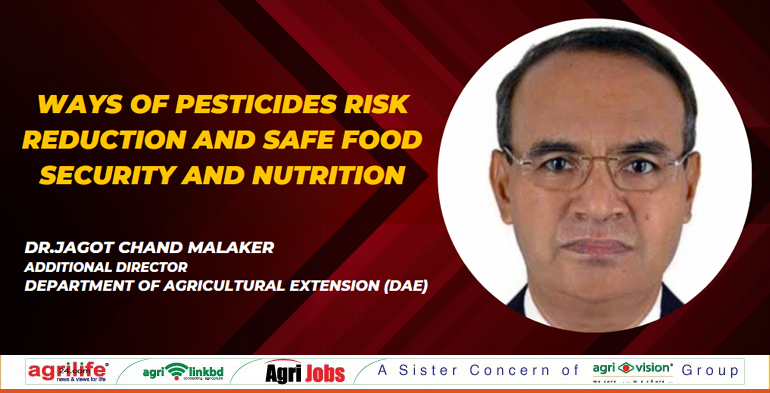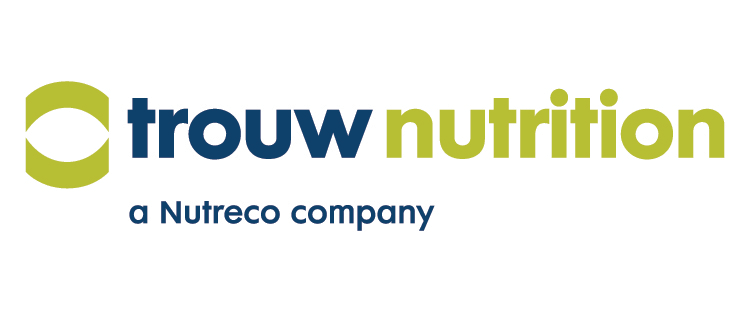
Dr. Jagot Chand Malaker: Nutrition security is an essential element of food security, as sound nutrition requires more than just enough energy for every man, woman, and child. Human needs can only be satisfied through a diversity of macro and micronutrients to ensure good health and prevention from disease. Worldwide, deficiencies in iodine, vitamin A, calcium, zinc, folic acid and iron are the most common. Children and pregnant women in low-income countries are at especially high risk for micronutrient deficiencies.
Food and nutrition insecurity is a term to describe when someone is unable to access or afford enough food or enough nutritious safe food for their overall health and well-being. Some food insecurity scenario in Bangladesh is derived from extreme poverty due to under and unemployment, inadequate access to land for cultivation, social exclusion and natural disasters. Over time, our country is self-sufficient in food under the visionary leadership of Bangabandhu’s daughter, Honourble Prime Minister Sheikh Hasina. Bangladesh ranks 3rd in rice production, 3rd in vegetable production, 7th in mango production, 8th in potato and guava production.
Now a day’s our food security already been achieved but nutrition security not yet achieved. Regarding nutrition security depends on three factors I. Availability food: Year round vegetables and fruits can be grown in every homestead of every inches of land of our country. It will ensure safe food and nutrition of our peoples. II. Access to food / purchasing capacity: If every household has homestead garden, surplus vegetables and fruits can be sold and can get hand cash and expense that cash to buy his necessary food items to ensure his nutritional security.III. Equal distribution of foods: Women always cook foods and distribute foods among the family members and she always preferred to feed male persons. If any remain foods available women eats that foods, which may not fulfill her nutritional demands so, she faces malnutrition. So, equity needed. Women always sacrifice for her family members. While food security is about access to a certain quantity of food, nutrition security considers food quality.
Farmers of our country are the main contributor of our resilience food systems. Four components of a food system: Production, processing, distribution, and consumption - food systems require many steps, each with a variety of inputs and outputs. Regarding production farmers played vital role to feed us as well as whole nation. Here it is our duty to ensure good agricultural practices in the production levels to get safe food. Department of Agricultural Extension is providing good agricultural practices (GAP) in the production levels through our upazila level setup for the farmers. GAP should be ensured at farm to fork for getting healthy, safe and nutritious food for the peoples.
The food system therefore includes not only the basic elements of how we get our safe food from farm to fork. Today world agriculture is facing major challenges, including how to feed a growing world population, how to reduce rural poverty in the world, and how to manage ecosystem goods and services in light of global climate change. The food system is a complex web of activities involving the production, processing, transport/distribution and consumption. Issues concerning the food system include the governance and economics of food production, its sustainability, the degree to which we have waste food, loss, how food production affects the natural environment and the impact of food on individual and population health. Food loss happens at production, processing, and transport/distribution levels but food waste happened at consumers’ level, it’s an offence to waste food.
Ways of food security ensured: Reducing food waste and food loss, Improving infrastructure, promoting fair trading practices, paying attention to diversification, reducing the yield gap, combating climate change and addressing the indirect causes of food insecurity. And food safety ways: Choose foods processed for safety, cook food thoroughly, eat cooked foods immediately, store cooked foods carefully, reheat cooked foods thoroughly, avoid contact between raw foods and cooked foods, wash hands repeatedly and keep all kitchen surfaces meticulously clean.
Farmers are using pesticides on fruits and vegetables to prevent the crops from by disease, insects and bacteria. Certain crops are more susceptible than others. Fruits and vegetables with harder skins like pumpkin need fewer pesticides than soft fruits and vegetables such as strawberries and spinach. It’s important to be aware that the residue from pesticides leaches into the crops and remains on the skin.
There have lots of different types of pesticides, all with specific actions. The ones most commonly used on fruits and vegetables are herbicides, fungicides, insecticides and bactericides. These pesticides work by destroying pests such as fungus, weeds, insects and microorganisms.
Biodegradable Pesticides are either biodegradable which means they can be broken down by microbes into harmless compounds.
Persistent Pesticides, meaning they can take months or years to break down. Persistent Organic Pollutants (POPs) are a type of pesticide which are resistant to degradation so they remain in the environment for long periods. POPs are incredibly harmful and have been linked to cancer, diabetes, hormone disruption and neurological disease.
Commonly used substances found in pesticides include: a).Glyphosate, also known as Roundup, is an endocrine disruptor. It’s been linked to cancer, liver disease, reproductive issues, birth defects, placental issues and DNA damage in embryos.b).Atrazine is another endocrine disruptor known to cause serious health conditions, especially in utero, resulting in low fetal weight, limb defects, and heart and urinary complications). c). Chlorpyrifos is linked to neurological effects and developmental disorders in children, autoimmune disorders and respiratory issues in adults. d).Heptachlor is a carcinogen associated with liver tumours, gastrointestinal upset and nervous system symptoms such as irritability and dizziness.
Effectively remove pesticides: Washing your fruits and vegetables before eating is essential, even if it’s only under the tap for a few seconds. Toxic chemicals are sprayed on crops and the residue of these pesticides remains on fruits and vegetables unless they are washed off using an appropriate method. Use salt (10% salt water solution), bicarb or vinegar to soak your vegetables for around 20 minutes to remove pesticides and bacteria. Avoid eating fruits and vegetables straight from the packet, even if they are organic.
Ways to keep vitamins and minerals: Vitamins B and C are water soluble whereas vitamins A, D, E and K are fat soluble. Never wash after cutting of vegetables .Washing the vegetables after cutting them can lead to the loss of the water-soluble vitamins B, C and minerals. This is why make sure you wash the vegetables and fruits properly before cutting. Washing fruits and vegetables with soap, detergent, or commercial produce wash is not recommended.
Low temperature cooking : Vitamin C is a water-soluble and temperature-sensitive vitamin, so is easily degraded during cooking, and elevated temperatures and long cooking times have been found to cause particularly severe losses of vitamin C. So, cooking should be at low temperature with long cooking time with cover.
How to ensure safe food security and nutrition safety
A farm is a field of production spread over a farmer’s fields and dwellings. That is, the farm is where any production takes place. Combination of all the advanced technologies of single component of the farm with the use of by-products of one component of another component of the farm. Achieving desired yield through optimum use of resources through integration of improved technology across farm components (rice cultivation, homestead fruit and vegetable cultivation, poultry/chicken rearing, cattle rearing, goat/sheep rearing and fish farming) and considering their inter-relationships and safe food security and nutrition safety.
We all need to give utmost importance to integrated farming system for more crop production. Crops in the field, livestock, fish and environment will be harmoniously coordinated. If not, we will not be able to progress as desired. Bangabandhu said. Food does not mean only rice, flour, flour and corn but fish, meat, eggs, milk, vegetables. Therefore, to improve agriculture, the production of all these must be improved. So Father of the Nation Bangabandhu said that we should produce our own food. We have to adopt with changed climate for successful production. Also GAP should be ensured at farm to fork for getting healthy, safe and nutritious food for the peoples. Food loss happens at production, processing, and transport/distribution levels but food waste happened at consumers’ level, it’s an offence to waste food. It should be addressed also create the awareness regarding nutrition.
Therefore, if every farmers house spaces will be used for safe food production. Also have to ensure ways to keep vitamins and minerals, proper washing for pesticide removal, proper cooking methods and proper distributions of foods among the family members, children and pregnant women will get priority. It will ensure safe food security and nutritional security of the country.
Writter: Dr.Jagot Chand Malaker, Additional Director, Department of Agricultural Extension, Farmgate, Dhaka 1215, Bangladesh.





















